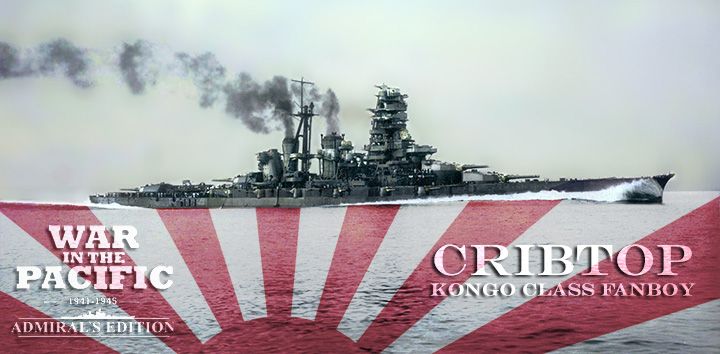Bullwinkle58
Posts: 11302
Joined: 2/24/2009
Status: offline

|
quote:
ORIGINAL: 21pzr
While I don't disagree with Bullwinkle about the high loss rate in the sub service, remember that they were in the Navy, while every single merchant mariner lost was a civilian, including those who chose to make the Murmansk or Malta runs several times, and many who were torpedoed more than once.
True. And many/most in the Navy were drafted, and then volunteered for subs. Merchant sailors, to be fair and complete, got union wages and benefits, unlike the gun crews on many of the vessels. The history of the thing isn't complete without that. And if a merchant mariner thought the run was too dangerous he could stay home. Navy sailors didn't have that option.
My point about sub figures is only to point out that agglomerations of stats can cause odd conclusions to be reached. If you put sea-going USN to sea-going MM the comparison changes a lot. If you only complare those on combatants it changes once again.
I'm not sure what you are referring to as the "military equivalent of the merchant marine", as only those ships that were classed as "AP" or "AK" were naval vessels with Navy crews, and these were in combat situations,
At the end of the run, sometimes. Other times they were off-loading at islands and bases already taken. And the IJN had no submarine threat to compare to the U-Boat war. MMs on Liberty and Victory ships making runs from the WC to the war zone were mostly very safe, as were the Navy crews. Not at all like the Atlantic.
as mdiehl says, without much hope of hitting back. Every other cargo and passenger ship ("xAK and xAP") were manned by civilian mariners, who put themselves in harms way many times. All of the services quoted by Oldman had enormous logistical tails, while every merchant mariner was on a ship.
Tails largely provided by the Navy. I ack. that, but I point out that skews the stats.
It took until the 80's before there was any action taken to grant merchant mariners who served in WWII veteran status.
A political issue not related to my points. IMO it would have been better to have drafted the MM and integrated them into the War Dept. But as I'm sure you are more familiar than am I, there were massive politcal forces at work to protect the union status of MMs during the war. It got very messy.
As for Maine Maritime Academy, no it is not federally funded, nor are the other state maritime academies (Great Lakes, New York, Massachussets, Texas A&M, California), which are great institutions that provide quality graduates to the merchant marine every year. My point is that none of the other federal service academies (West Point, Annapolis, Air Force, or Coast Guard) ever sent undergraduates to war,
But they did change the program to three years. And USNA midshipmen do full summers at sea in I believe two of the years. I'd have to check, but I'd bet some were on ships in war zones during Korea and/or Vietnam.
and were not granted a Battle Standard by the DOD, which displays the battle ribbons won by the undergraduates.
I myself was an undergraduate cadet during the Vietnam war, and sailed ships into that war zone, and more recently did the same during the first Gulf war, and came under SCUD fire in the port of Dammam. I have great respect for our armed forces, and the men and women who serve, but would only like recognition of those of us who help them do their job by bringing the bullets and beans, trucks and tanks. I am proud of my Vietnam and Desert Storm campaign ribbons, and it was only my wife's reasoning that it was a young man's place that kept me from going back to the Gulf for Iraqi Freedom. I'm way too old to be sitting on 30,000 tons of explosives. Read "Sailing into the Abyss" about the trials of the SS Badger State during Vietnam, to learn about merchant seamen carrying war materials (explosives).
I'm happy you served. I have no problem calling you a veteran. I only want to compare your experience in Vietnam to my OCS instructor, who as a BM3 drove a barge loaded with 30,000 gallons of avgas in rubber bladders up the Perfume River into Hue during the Tet Offensive, taking small arms fire and RPGs from the shoreline. He joined the Navy to avoid the draft, and in 1968 was making $238.50 per month. So it's relative.
Thanks to all our veterans, from all wars, and to our current service personnel, for a job well done.
From me as well.
Bill
_____________________________
The Moose
|
 Printable Version
Printable Version








 Almost like being born again.
Almost like being born again. 





 Since the ship was heading east-southeastward, the waves likely caused the Fitzgerald to roll heavily.[100]
Since the ship was heading east-southeastward, the waves likely caused the Fitzgerald to roll heavily.[100] 




 New Messages
New Messages No New Messages
No New Messages Hot Topic w/ New Messages
Hot Topic w/ New Messages Hot Topic w/o New Messages
Hot Topic w/o New Messages Locked w/ New Messages
Locked w/ New Messages Locked w/o New Messages
Locked w/o New Messages Post New Thread
Post New Thread